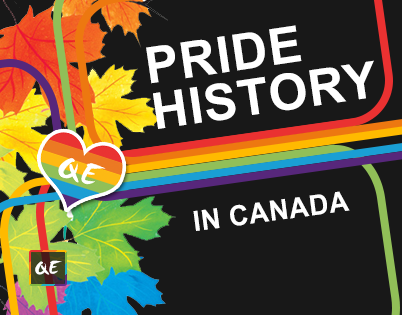Notable 2SLGBTQ+ Awareness Dates
Throughout the year, a number of calendar dates are reserved for recognizing the unique identities and challenges experienced by members of the 2SLGBTQIA+ community.
There are many reasons why 2SLGBTQIA+ dates are celebrated and acknowledged but most importantly, ALL the unique 2SLGBTQIA+ identities that make up our diverse community deserve to be recognized, respected and supported.
Annual 2SLGBTQ+ Dates
| Theme | Date |
|---|---|
| Aromantic Spectrum Awareness Week | Week of February 19-25th (2023) |
| International Transgender Day of Visibility | March 31st |
| International Asexuality Day | April 6th |
| Lesbian Visibility Day | April 26th |
| International Day Against Homophobia, Transphobia & Biphobia (IDAHOT) | May 17th |
| Pansexual Visibility | May 24th |
| Pride Month | June |
| International Non-Binary People's Day | July 14th |
| Bisexual Awareness Week | Week of September 23 |
| Celebrate Bisexuality Day | September 23rd |
| LGBT History Month | October |
| International Lesbian Day | October 8th |
| National Coming Out Day | October 11th |
| Spirit Day (Anti-Bullying) | 3rd Thursday in October |
| International Pronouns Day | 3rd Wednesday in October |
| Asexual Awareness Week | October 23-29 (2022) |
| Intersex Awareness Day | October 26th |
| Trans Parent Day | 1st Sunday in November |
| Transgender Awareness Week | 2nd Week of November |
| Transgender Day of Remembrance | November 20th |
| Pansexual Pride Day | December 8th |
Aromantic Spectrum Awareness Week
ASAW is annually marked on the first week following Valentine's Day, the week is dedicated to both celebrating and raising awareness about Aromantic spectrum identities.
Originally Aromantic Awareness Week was first recognized in November 2014, however, the following year it was moved to late February and renamed to Aromantic Spectrum Awareness Week to be more inclusive.
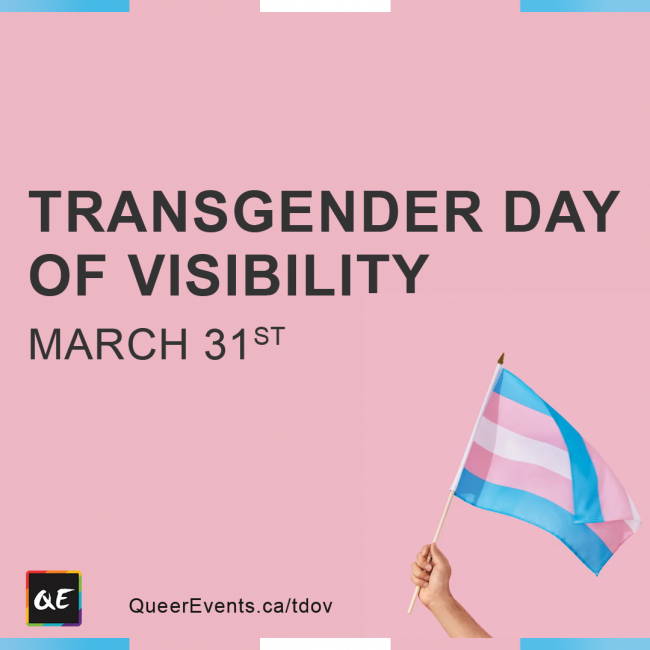
Transgender Day of Visibility
TDOV is dedicated to celebrating transgender people, their contributions to society and raising awareness of discrimination faced by transgender people worldwide.

International Asexuality Day
International Asexuality Day is a coordinated worldwide campaign promoting the ace umbrella, including demisexual, grey-asexual and other ace identities.

Lesbian Visibility Day
Created in 2008, this day showcases women-loving-women, providing a platform for lesbian role models to speak out on the issues facing female-identified sexual minorities. This day, alongside other queer celebration days, is still an integral part of moving forwards to create an intersectional society where all are treated equally and fairly.

International Day Against Homophobia, Transphobia & Biphobia (IDAHOT)
Since 2005, May 17th has been dedicated to the International Day Against Homophobia, Transphobia and Biphobia, marking the day in 1990 when the World Health Organization removed homosexuality from its list of mental disorders.
It constitutes an annual landmark to draw the attention of decision makers, the media, the public, opinion leaders and local authorities to the violence and discrimination experienced by LGBT2QI+ people internationally.
Pride Month
Pride is generally celebrated in June throughout the world because the movement’s origins started in New York City, USA. Brenda Howard coordinated rallies and march after Stonewall and originated the idea for a week-long series of event which evolved into Pride Day. This concept spread and is now celebrated internationally.
International Non Binary People's Day
International Non-Binary People's Day is observed each year on July 14. Non-binary, also known as genderqueer, is a spectrum of gender identities that are not exclusively masculine or feminine — identities that are outside the gender binary.
Non-binary people may identify as having two or more genders, having no gender, moving between genders or having a fluctuating gender identity, or being third gender or other-gendered, a category that includes those who do not place a name to their gender.

Bisexual Awareness Week
Started by GLAAD & BiNet USA, this Week seeks to accelerate acceptance of bisexual experiences, while also celebrating the resiliency of, the bisexual community.
Throughout #BiWeek, allies and bisexual people learn about the history, culture, community, and current policy priorities of bisexual communities.
Celebrate Bisexuality Day
Also referred to as Bisexual Pride Day, and Bisexual Visibility Day
This day has been marked each year since 1999 to celebrate the bisexual community and to highlight biphobia. Started by the coordinators at BiNet USA, this day is intended to celebrating and respecting the bisexual community as well as recognizing the ongoing challenges and biphobia the community faces.

LGBT History Month
First celebrated in 1994, it was declared a national History month by President Barack Obama in 2009. LGBT History Month is a month-long annual observance of lesbian, gay, bisexual and transgender history, and the history of the gay rights and related civil rights movements. LGBT History Month provides role models, builds community, and represents a civil rights statement about the contributions of the LGBT community
International Lesbian Day
International Lesbian Day celebrates lesbian culture, community and visibility.
IDL dates back to New Zealand activism and is considered to be first celebrated on March 8th, 1980 by a group of 40 lesbians who marched through Wellington Park, New Zealand on International Women’s Day.
International Lesbian Day is marked annual on October 8th because it’s exactly six months after International Women’s Day on March 8th.
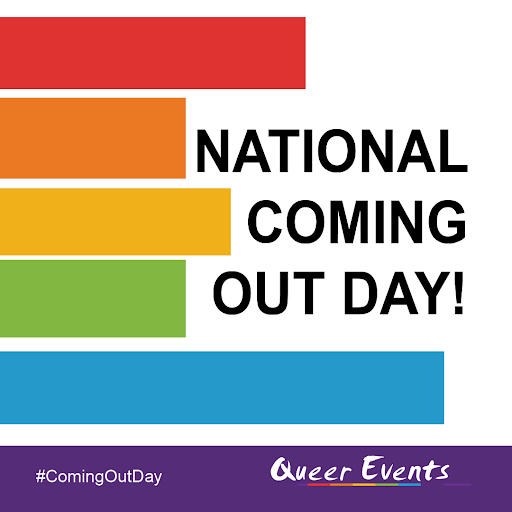
National Coming Out Day
Started in 1988 by Rob Eichberg and Jean O’Leary in celebration of the second March on Washington for Lesbian and Gay Rights on Oct. 11, 1987. In the 1980s, when many people did not know any openly LGBT2Q+ people, ignorance and silence allowed homophobia to persist. Coming out was a form of activism and it was believed that when people realised they knew someone who was LGBT2Q+, they would be far more likely to support equality under the law.
Each year on Oct. 11, National Coming Out Day continues to promote a safe world for LGBT2Q+ individuals to live openly.
It should be noted that modern LGBT2Q+ activists believe that the idea of "coming out" reinforces a view that heterosexuality is the norm. "Coming out" implicitly announces — to LGBTQ individuals, allies and enemies — that queer people are aberrant. There has additionally been growing acknowledgement that for many members of our Queer community, this places undue pressure on folks who are not in a safe country or circumstances to ‘come out’.
Spirit Day (Anti-Bullying)
Spirit Day was first established in 2010 by Canadian teenager Brittany McMillan. It was created in response to a series of bullying related suicides of LGBT2Q+ students in 2010. This day encourages everyone to speak out against 2SLGBTQ+ bullying and standing with 2SLGBTQ youth, who disproportionately face bullying and harassment because of their identities. On this day, supporters wear purple as a way to visibly show solidarity with queer youth and to honour 2SLGBTQIA+ victims of suicide.
The name “Spirit Day” comes from the purple stripe of the Rainbow flag which represents ‘spirit’.

International Pronouns Day
International Pronouns Day began in 2018 and seeks to make asking, sharing, and respecting personal pronouns commonplace. Referring to people by the pronouns they determine for themselves is basic to human dignity. Being referred to by the wrong pronouns particularly affects transgender and gender nonconforming people.
Asexual Awareness Week
Asexual Awareness Week is an international campaign that seeks to educate about asexual, aromantic, demisexual, and grey-asexual experiences and to create materials that are accessible to our community and our allies around the world.

Intersex Awareness Day
Celebrated in October to commemorate the first intersex protest, which took place in Boston, MA outside the annual American Academy of Pediatrics conference in 1996. This day was first established in 2003 by Emi Koyoma and Betsy Driver, as a way to raise awareness and a day of action to end shame, secrecy and unwanted genital cosmetic surgeries on intersex children.
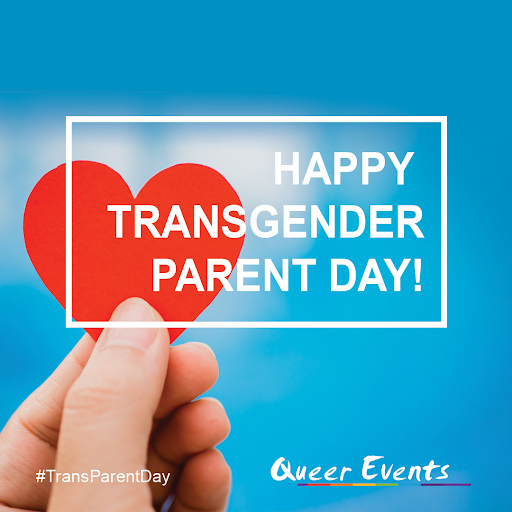
Trans Parent Day
This day was first established in 2009 and is a day to celebrate and honour transgender parents instead of the traditional Mother’s or Father’s Day. Today the day also includes parents who have transgender children. This day typically involves small celebrations and gift-giving to one’s parent or caregiver.
Transgender Awareness Week
Dedicated to increasing visibility and awareness of the transgender community.
Transgender Day of Remembrance
The Transgender Day of Remembrance (TDOR) was set aside to memorialize those who have been lost due to anti-transgender hatred or prejudice. The first candlelight vigil occurred in 1999.
TDOR provides us all an opportunity to publicly mourn and honor the trans lives lost in our community over the past year, in addition to helping raise awareness about hate crimes that the trans community experience daily.
LGBT History Month
LGBT History Month is a month-long annual observance of lesbian, gay, bisexual and transgender history, and the history of the gay rights and related civil rights movements. LGBT History Month provides role models, builds community, and represents a civil rights statement about the contributions of the LGBT community
Queer Events Workshops & Sensitivity Training
Increase your teams 2SLGBTQIA+ Awareness & Sensitivity with QE
Learn About Queer Canadian History
The Journey to Equal Rights & Acceptance
Equal rights for 2SLGBTQ+ individuals is a long and ongoing journey. Our battle for rights and acceptance is rooted in aggression, discrimination, raids and riots.
Learn about the important milestones in our Canadian Pride History
Queer HistoryFood for Queers
Stay Safe. Not Hungry
Providing support for 2SLGBTQ+ folks experiencing food insecurities within the city of London


